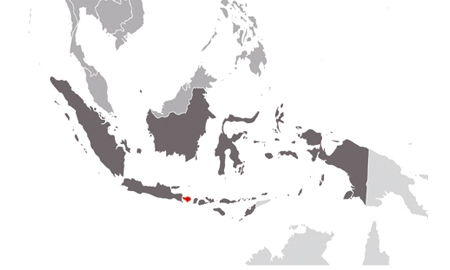The Bali-Nusa Tenggara Economic Corridor is home to Indonesia’s most famous and popular province. It is only logical then that the region’s theme is the ‘Gateway for tourism industry and national food support.’ Tourism is the obvious strength, yet agriculture is closely linked in the corridor’s strategy to maintain a green, all-organic economy.
Combined, Bali and Nusa Tenggara have 15% of national hotel capacity and account for 21% of national hotel income. Bali alone received nearly 40% of foreign tourist visits in 2010. The Master Plan highlights that there is still much unrealized tourism potential, especially in terms of average tourist spending per day and average length of stays, which are both low in comparison with Thailand and the Maldives. To turn these trends around, the government will improve security, refine its marketing tactics, promote the development of tourist destinations “beyond Bali” with a focus on services and facilities, and improve human resources development.
In addition, the two provinces can be marketed as a major tourist destination for MICE (meetings, incentives, conventions and exhibitions), cruises and yachts. “We have to improve the quality of the tourism industry,” explains Made Pastika, Governor of Bali. “We do not want to increase the quantity of tourists, but rather the quality.”
The MP3EI points out the need to increase capacity and services at airports, develop road and rail infrastructure, raise harbors and marinas to international standards, and move towards more renewable energies and cleaner fuels.
In the area of food support, Bali-Nusa Tenggara will focus on fisheries and animal husbandry, two of its present strengths.
Currently, fisheries contribute 13.2% to the food agricultural sector, yet they are not operating at full potential. The MP3EI aims to boost the production of fishery products and raise the production of high value-added processed products, while also improving infrastructure and building water treatment plants to support aquaculture and marine product processing.
In the area of animal husbandry, beef cattle afford the most potential for development in the region, while staying within the ‘green’ concept envisioned. Beyond meat, leather and milk, for example, cow urine can be used as organic fertilizer and cow faeces, as natural manure and for biogas energy.

0 COMMENTS